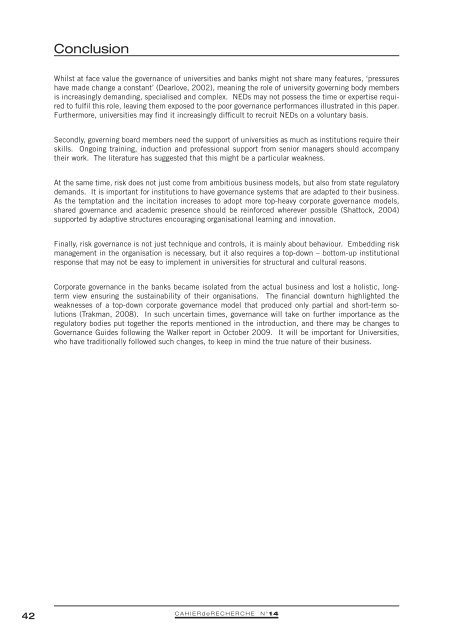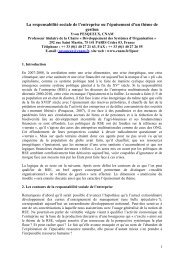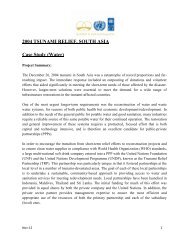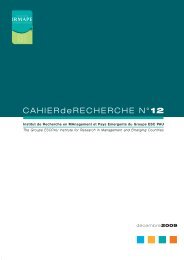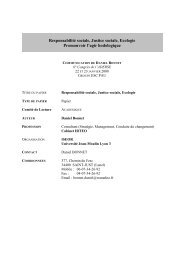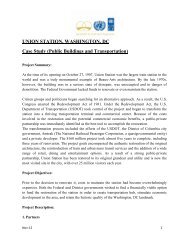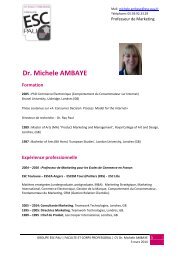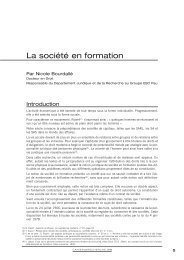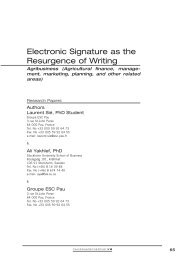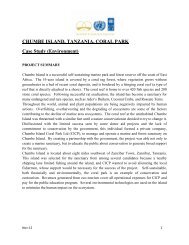Cahier de recherche N°14 - ESC Pau
Cahier de recherche N°14 - ESC Pau
Cahier de recherche N°14 - ESC Pau
Create successful ePaper yourself
Turn your PDF publications into a flip-book with our unique Google optimized e-Paper software.
ConclusionWhilst at face value the governance of universities and banks might not share many features, ‘pressureshave ma<strong>de</strong> change a constant’ (Dearlove, 2002), meaning the role of university governing body membersis increasingly <strong>de</strong>manding, specialised and complex. NEDs may not possess the time or expertise requiredto fulfil this role, leaving them exposed to the poor governance performances illustrated in this paper.Furthermore, universities may find it increasingly difficult to recruit NEDs on a voluntary basis.Secondly, governing board members need the support of universities as much as institutions require theirskills. Ongoing training, induction and professional support from senior managers should accompanytheir work. The literature has suggested that this might be a particular weakness.At the same time, risk does not just come from ambitious business mo<strong>de</strong>ls, but also from state regulatory<strong>de</strong>mands. It is important for institutions to have governance systems that are adapted to their business.As the temptation and the incitation increases to adopt more top-heavy corporate governance mo<strong>de</strong>ls,shared governance and aca<strong>de</strong>mic presence should be reinforced wherever possible (Shattock, 2004)supported by adaptive structures encouraging organisational learning and innovation.Finally, risk governance is not just technique and controls, it is mainly about behaviour. Embedding riskmanagement in the organisation is necessary, but it also requires a top-down – bottom-up institutionalresponse that may not be easy to implement in universities for structural and cultural reasons.Corporate governance in the banks became isolated from the actual business and lost a holistic, longtermview ensuring the sustainability of their organisations. The financial downturn highlighted theweaknesses of a top-down corporate governance mo<strong>de</strong>l that produced only partial and short-term solutions(Trakman, 2008). In such uncertain times, governance will take on further importance as theregulatory bodies put together the reports mentioned in the introduction, and there may be changes toGovernance Gui<strong>de</strong>s following the Walker report in October 2009. It will be important for Universities,who have traditionally followed such changes, to keep in mind the true nature of their business.42CAHIER<strong>de</strong>RECHERCHE N°14


